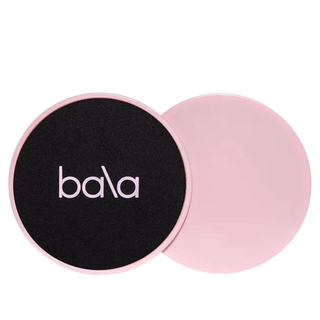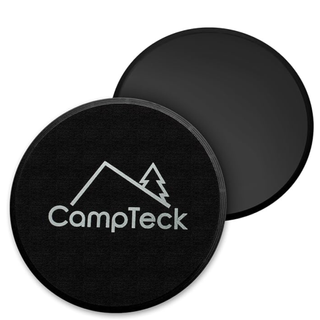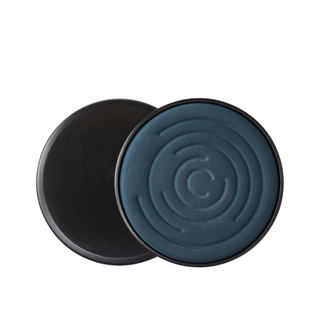I tried Pilates sliders for two weeks and honestly? My core has never felt stronger
Are they really the best at home reformer alternative?
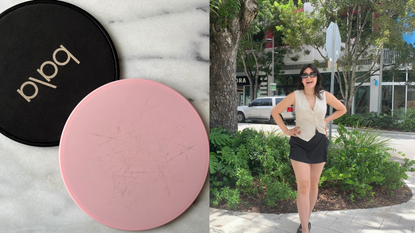

It's no secret that Pilates workouts are great for you, promising to strengthen and tone your muscles while improving your posture and flexibility. It's also a great low-intensity sweat session to incorporate into your routine, putting less pressure on your joints and muscles while still delivering impressive mental and physical benefits. That's why, when I read about the many benefits of Pilates sliders online, I was intrigued.
You see, as someone who has long been incorporating Pilates into their home workout repertoire, I've built up quite an array of home workout tools to help me make the most of my at-home practice. From Bala bangles, to Pilates blocks, and even a pilates ring or two, I'm always keen to test the next kit must-try.
Known as the top alternative for a Reformer machine at home, Pilates sliders promise to help you take your home workouts up a notch and use slow and controlled movements to tone your core and more.
For those who are unfamiliar with Reformer Pilates, it is a dynamic version of the workout that involves a - yep, you guessed it - Reformer machine. Loved by celebrities including Kendall Jenner and Hailey Bieber, these machines are designed to make your Pilates workouts that bit more intense by adding different levels of resistance.
Keep reading to see how I got on testing Pilates sliders for two weeks, plus why I'm now a total convert. Wondering, is Pilates once a week enough to improve your fitness? Our guide will help, plus don't miss our guides to Pilates for beginners, the best Pilates exercises, and the most effective Pilates ab workout , not to mention the difference between Pilates and yoga. Keen to shop kit? Scroll our edits of the best Pilates leggings, best Pilates tops, and best unitards, plus the best at-home Reformer Pilates machines and budget-friendly Pilates sculpt bars, Pilates sliders and Pilates rings.
My honest review of Pilates sliders after two weeks of testing
What are Pilates sliders?
Great question. In short, Pilates sliders are a disc-like workout tool that helps you to glide across the floor in contrast with the ground, in turn helping you to leverage your body weight and emulate gliding on a Reformer machine.
According to Lottie Anderson, founder of Pilates studio Bondi Rise, pilates sliders are a great tool to incorporate into your routine. "We use Pilates sliders often in dynamic exercises, engaging multiple muscle groups, which is why it’s so effective. It leads to a full-body workout, targeting areas such as core, legs, glutes and arms," she shares.
Marie Claire Newsletter
Celebrity news, beauty, fashion advice, and fascinating features, delivered straight to your inbox!
Wondering why you wouldn't just invest in a Reformer itself? Spoiler alert: a Reformer is a pretty heavy (not to mention expensive) piece of kit, so you'd usually have to head in-studio to try one unless you win the lottery. Pilates sliders offer a more attainable, realistic and affordable option if you don't have the budget for classes right now.
@emmaolivianiemi ♬ Perfect (Exceeder) - Mason & Princess Superstar
What are the benefits of using Pilates sliders?
According to Aimee Victoria Long, celebrity personal trainer, Pilates instructor and barre specialist, pilates sliders can be a very effective workout tool. Why? Well, they engage multiple muscle groups while creating low-impact resistance, in turn targeting multiple different parts of the body and muscle groups.
Long highlights the benefits as the following:
1. They strengthen your core
"Sliders engage the core muscles extensively, helping to improve core strength and stability," she shares.
2. They improve your flexibility
Did you know? Sliding exercises (the kind of moves you'd do with sliders) involve stretching and lengthening muscles, promoting flexibility and range of motion, she continues.
3. They're low impact and kinder on your joints
This one's key, especially if you're recovering from injury or mindful of movement that might strain your body. "Sliding exercises are gentle on the joints, making them suitable for individuals of all fitness levels and ages," the PT highlights.
4. They activate your muscles
Did you know? Sliders require muscles to work harder to control movement, leading to improved muscle activation and toning, she goes on.
5. They're versatile
"Pilates sliders can be used for a wide range of exercises targeting various muscle groups, providing a versatile workout experience," Long adds.
6. They improve both balance and coordination
"Sliding exercises challenge balance and coordination, enhancing overall body control and stability," she continues.
7. They're affordable and easy to transport
Last but by no means least, sliders are compact and lightweight, making them convenient for at-home workouts or for taking to the gym or while travelling. "Not just that, but Pilates sliders are relatively inexpensive compared to other workout equipment, offering a cost-effective way to enhance fitness," she concludes.
What workouts can you use Pilates sliders for?
Now, we've talked all about what Pilates sliders are, plus their benefits. But the real question is - how do you incorporate said sliders into your day-to-day routine?
According to the experts, in a wide variety of exercises. Louisa Drake, fitness trainer and founder of the Louisa Drake Method, recommends adding them to your lunges or glute bridges to keep your muscles challenged. "Simply place both of your feet on a disc and press each one out a few inches at a time to target and strengthen the hamstrings," she explains.
Drake also suggests using Pilates sliders to target your lower abs, incorporating them into your push-ups to add a little spice, and further targeting your arm muscles. "Attempting push-ups with the sliders is an excellent way to challenge your shoulders, triceps and core," she adds.
A personal favourite of mine, which was recommended by Pilates and fitness instructor Eloise Skinner is the slider lunge. To recreate this workout, Skinner instructs standing with a neutral, lifted spine and one foot on a slider (you can also hold a counter or tabletop for support, if necessary). Then, using the foot on the slider, press backwards into a lunge, keeping your upper body steady and stable. Keep your weight over the supporting leg, and lean your upper body slightly forward as you lunge backwards. You can pause in the lunge, perhaps even adding a few pulses, before bringing the working leg back in. Repeat for five to ten lunges on one leg, and then swap sides.
A post shared by KIRSTY GODSO (@kirstygodso)
A photo posted by on
I tried Pilates sliders for two weeks - my honest review
Week one
Testing these Pilates sliders came at a perfect time for me. I was starting to feel a little run down and low energy, and while I wasn't ill enough to skip movement altogether, I was craving a low-impact workout.
As someone who usually uses home workout tools in their daily practice, I had a clear idea of the muscle groups I wanted to target while using my sliders: namely my hamstrings, biceps, and core. As I'm currently training for a half marathon, I'm trying to find ways to strengthen my hamstrings and core to support my training. As for my biceps, I've long known that this is my weakest muscle so always incorporate arm moves into my workouts where I can.
I started by streaming this quick 15 minute Pilates slider workout on YouTube which was totally free, challenging and fun. I did find myself moving some furniture around to make sure I had enough space, but overall I had a great time with this workout. I engaged several muscles in my glutes that I had only been able to target while doing in-studio Reformer workouts and it felt great to reap some benefits of a Reformer workout sans Reformer.
As for the sliders themselves, they felt really easy to glide and get a strong grip on my feet. I didn't feel them sliding away or slipping from my toes. Rather, they did what I always look for in workout equipment - support me with my workout rather than distract me.
I saw on TikTok that some people rave about using socks to simulate Pilates sliders so decided to give this a go for two days, too. Even though they were helpful, I felt as though they kept sliding off. Bottom line: they just didn't provide me with the same stability that the professionally crafted sliders did.
For the remainder of the week, I alternated the muscle groups by simply adding the Pilates sliders to my arm, core, and lower body workouts and doing 20 minute Pilates workouts. I enjoyed giving myself the freedom to incorporate them as I pleased while also using the expert workout suggestions.
Week two
By week two, I really started to feel a slight difference in my core, especially when performing lower ab workouts.
The extra hold that it took me to stabilise my feet with the sliders added an extra challenge. Now, when I use the sliders, I feel like I'm gliding through the moves (no pun intended) and, in turn, strengthening my upper body, core, and lower body.
Will I continue using Pilates sliders?
In short, absolutely. I felt like the Pilates sliders were an easy, affordable and effective way to target most muscle groups, not to mention I was really surprised by the strength I noticed in my core at the end of the two weeks.
While two weeks isn't long enough to see drastic fitness changes, I'm excited to continue my new training to see how this workout tool continues to build my strength and support my other workouts (I'm looking at you, running).
Overall, I think Pilates sliders are a great at-home alternative to a traditional in-studio Reformer machine workout. They're an inexpensive option that provides a similar range of movement, resistance and sweat session. Sure, it's not the same as a reformer machine, but it's sure close...
Shop more Pilates kit now:
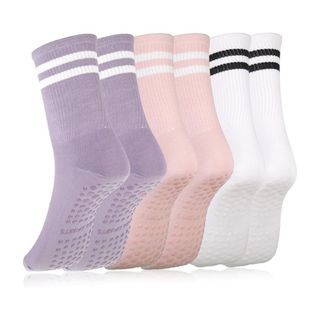
Grippy non-slip socks are a must-buy if you're looking to up your Pilates practice from home. This Amazon three-pack is great value for money.
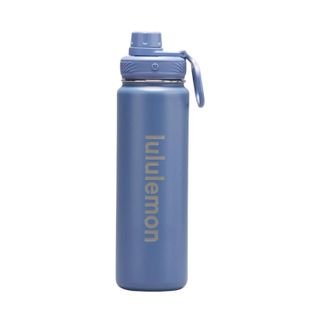
Keep your hydration levels high with this handy visual reminder from lululemon - an aesthetically pleasing way to hit your daily intake.
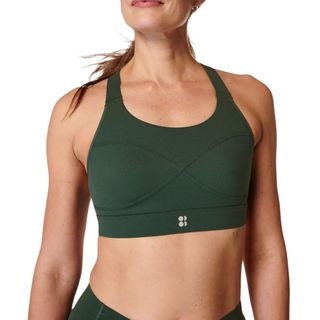
Sweaty Betty bras have long been one of my go-to's thanks to their comfort, durability and support. This Power design is no different and will see you through both low impact and high impact sweat sessions.
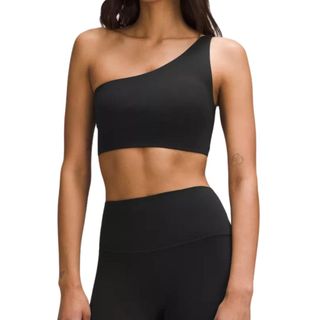
This one shoulder design from lululemon supports as well as sweat wicks, and looks cute for low impact sessions.
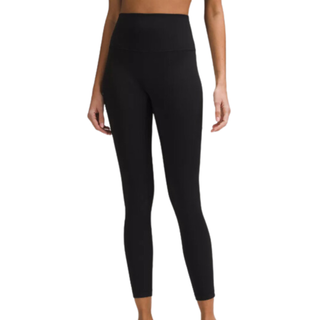
Keen to invest in leggings that'll last the long run? I've had my Aligns for years now and they're good as new, always offering a soft and supportive option for any type of workout.
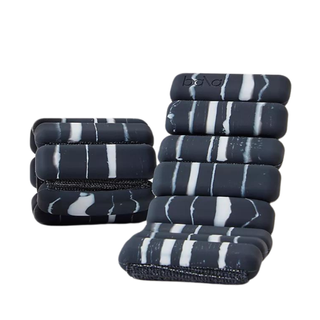
Love your Pilates sliders and keen to try another Pilates accessory to level up your home workouts? Bala bangles have a cult following for a reason and are loved by PT's and celebrities alike.

Sofia Piza is the Fashion Writer at Marie Claire UK.
Sofia Piza is a Fashion Writer with experience working across runway trends, shopping picks, creative production, and celebrity fashion news. Born in Mexico and raised in five countries, Sofia decided to settle in London after spending four years at the London College of Fashion, studying Fashion Journalism. When she's not sourcing inspiration from social media, you will most certainly find Sofia anywhere from a local vintage market to busy central London streets people watching - the possibilities are endless.
-
 Jennifer Lopez wants to “make over her image” following Ben Affleck divorce
Jennifer Lopez wants to “make over her image” following Ben Affleck divorceBy Jenny Proudfoot
-
 The White Lotus cast's words about the upcoming season are going viral
The White Lotus cast's words about the upcoming season are going viralBy Jenny Proudfoot
-
 A landmark new Ozempic study claims the drug can "delay ageing" - but top experts warn it's not that simple
A landmark new Ozempic study claims the drug can "delay ageing" - but top experts warn it's not that simpleA deep dive.
By Ally Head
-
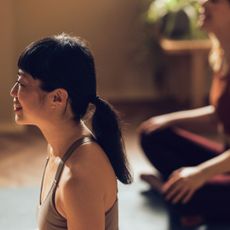 Mat Pilates promises to deliver studio-worthy results from home - 7 ways to make it seriously effective, from top trainers
Mat Pilates promises to deliver studio-worthy results from home - 7 ways to make it seriously effective, from top trainersWe like the sound of this one.
By Rebecca Shepherd
-
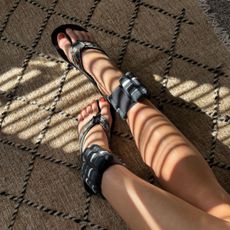 I tried ankle weights for walking as TikTok is obsessed with them RN - and despite being sceptical, I'm a convert
I tried ankle weights for walking as TikTok is obsessed with them RN - and despite being sceptical, I'm a convertHonestly? I highly recommend.
By Camille Dubuis-Welch
-
 I tried London's newest trending Pilates class for a month — and am shocked at how much it challenged my body
I tried London's newest trending Pilates class for a month — and am shocked at how much it challenged my bodyThe answer to what happens when you mix, Pilates, yoga and strength workouts
By Rebecca Shepherd
-
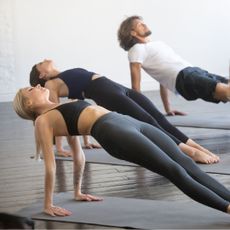 Seen the hype around Pilates and wondering which type is best? Your guide to choosing the right session for you
Seen the hype around Pilates and wondering which type is best? Your guide to choosing the right session for youMat, classical, Tower or Reformer?
By Chloe Gray
-
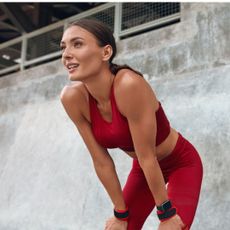 Wrist weights are affordable, effective, and easy to use – 5 benefits that prove they'll transform your workout routine
Wrist weights are affordable, effective, and easy to use – 5 benefits that prove they'll transform your workout routineA deep dive into the trending bit of kit.
By Abbi Henderson
-
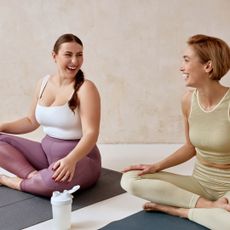 Yes, there's such thing as too much - so, how often should you do Pilates to see the best results?
Yes, there's such thing as too much - so, how often should you do Pilates to see the best results?Top experts impart their wisdom.
By Chloe Gray
-
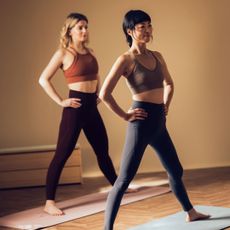 Experts confirm: these are the 7 most advanced Pilates exercises you can do to build strength, balance and tone
Experts confirm: these are the 7 most advanced Pilates exercises you can do to build strength, balance and toneReady to take your Pilates practice up a notch (or three)?
By Rebecca Shepherd
-
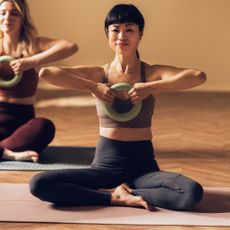 Looking to level up your home workouts? I'm currently sold on the benefits of Pilates rings - 6 I have my eye on
Looking to level up your home workouts? I'm currently sold on the benefits of Pilates rings - 6 I have my eye onIt’s time to get familiar with the "Magic O"
By Valeza Bakolli
